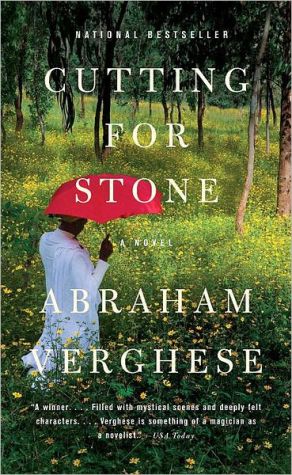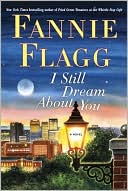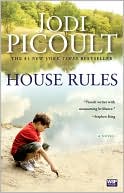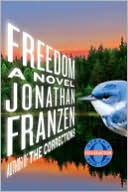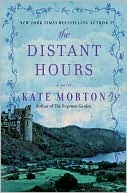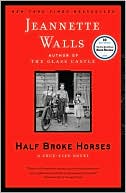Sarah's Key
A New York Times bestseller. Paris, July 1942: Sarah, a ten year-old girl, is brutally arrested with her family by the French police in the Vel’ d’Hiv’ roundup, but not before she locks her younger brother in a cupboard in the family's apartment, thinking that she will be back within a few hours.\ Paris, May 2002: On Vel’ d’Hiv’s 60th anniversary, journalist Julia Jarmond is asked to write an article about this black day in France's past. Through her contemporary investigation, she stumbles...
Search in google:
An American journalist researches the notorious roundup of Parisian Jews and uncovers her French family's war-era secrets.Publishers WeeklyIn the summer of 1942, the French police arrested thousands of Jewish families and held them outside of Paris before shipping them off to Auschwitz. On the 60th anniversary of the roundups, an expatriate American journalist covering the atrocities discovers a personal connection—her apartment was formerly occupied by one such family. She resolves to find out what happened to Sarah, the 10-year-old daughter, who was the only family member to survive. The story is heart-wrenching, and Polly Stone gives an excellent performance, keeping a low-key tone through descriptions of horror that would elicit excessive dramatics from a less talented performer. Her characters are easy to differentiate, and her French accent is convincing. De Rosnay's novel is captivating, and the powerful narration gives it even greater impact. A St. Martin's hardcover. (June)
\ SARAH'S KEY (Chapter 1)\ Paris, July 1942\ \ The girl was the first to hear the loud pounding on the door. Her room was closest to the entrance of the apartment. At first, dazed with sleep, she thought it was her father, coming up from his hiding place in the cellar. He'd forgotten his keys, and was impatient because nobody had heard his first, timid knock. But then came the voices, strong and brutal in the silence of the night. Nothing to do with her father. "Police! Open up! Now!"\ The pounding took up again, louder. It echoed to the marrow of her bones. Her younger brother, asleep in the next bed, stirred. "Police! Open up! Open up!" What time was it? She peered through the curtains. It was still dark outside.\ She was afraid. She remembered the recent, hushed conversations she had overheard, late at night, when her parents thought she was asleep. She had crept up to the living room door and she had listened and watched from a little crack through the panel. Her father's nervous voice. Her mother's anxious face. They spoke their native tongue, which the girl understood, although she was not as fluent as them. Her father had whispered that times ahead would be difficult. That they would have to be brave and very careful. He pronounced strange, unknown words: "camps," "roundup, a big roundup," "early morning arrests," and the girl wondered what all of it meant. Her father had murmured that only the men were in danger, not the women, not the children, and that he would hide in the cellar every night.\ He had explained to the girl in the morning that it would be safer if he slept downstairs, for a little while. Till "things got safe." What "things," exactly? thought the girl. What was "safe"? When would things be "safe" again? She wanted to find out what he had meant by "camp" and "roundup," but she worried about admitting she had eavesdropped on her parents, several times. So she had not dared ask him.\ "Open up! Police!"\ Had the police found Papa in the cellar, she asked herself. Was that why they were here, had the police come to take Papa to the places he had mentioned during those hushed midnight talks: the "camps," far away, out of the city?\ The girl padded fast on silent feet to her mother's room, down the corridor. Her mother awoke the minute she felt a hand on her shoulder.\ "It's the police, Maman," the girl whispered. "They're banging on the door."\ Her mother swept her legs from under the sheets, brushed her hair out of her eyes. The girl thought she looked tired, old, much older than her thirty years.\ "Have they come to take Papa away?" pleaded the girl, her hands on her mother's arms. "Have they come for him?"\ The mother did not answer. Again the loud voices down the hallway. The mother swiftly put a dressing gown over her night dress, then took the girl by the hand and went to the door. Her hand was hot and clammy, like a child's, the girl thought.\ "Yes?" the mother said timidly, without opening the latch.\ A man's voice. He shouted her name.\ "Yes, Monsieur, that is me," she answered. Her accent came out strong, almost harsh.\ "Open up. Immediately. Police."\ The mother put a hand to her throat and the girl noticed how pale she was. She seemed drained, frozen. As if she could no longer move. The girl had never seen such fear on her mother's face. She felt her mouth go dry with anguish.\ The men banged again. The mother opened the door with clumsy, trembling fingers. The girl winced, expecting to see green-gray suits.\ Two men stood there. One was a policeman, wearing his dark blue knee-length cape and a high, round cap. The other man wore a beige raincoat. He had a list in his hand. Once again, he said the woman's name. And the father's name. He spoke perfect French. Then we are safe, thought the girl. If they are French, and not German, we are not in danger. If they are French, they will not harm us.\ The mother pulled her daughter close to her. The girl could feel the woman's heart beating through her dressing gown. She wanted to push her mother away. She wanted her mother to stand up straight and look at the men boldly, to stop cowering, to prevent her heart from beating like that, like a frightened animal's. She wanted her mother to be brave.\ "My husband is . . . not here," stuttered the mother. "I don't know where he is. I don't know."\ The man with the beige raincoat shoved his way into the apartment.\ "Hurry up, Madame. You have ten minutes. Pack some clothes. Enough for a couple of days."\ The mother did not move. She stared at the policeman. He was standing on the landing, his back to the door. He seemed indifferent, bored. She put a hand on his navy sleeve.\ "Monsieur, please--," she began.\ The policeman turned, brushing her hand away. A hard, blank expression in his eyes.\ "You heard me. You are coming with us. Your daughter, too. Just do as you are told."\ SARAH'S KEY Copyright © 2007 by Tatiana de Rosnay
\ From the Publisher"A wonderful book." --Joy Behar, The View \ “This is the shocking, profoundly moving and morally challenging story... It will haunt you, it will help to complete you… nothing short of miraculous.” -Augusten Burroughs “Just when you thought you might have read about every horror of the Holocaust, a book will come along and shine a fierce light upon yet another haunting wrong. SARAH'S KEY is such a novel. In remarkably unsparing, unsentimental prose... through a lens so personal and intimate, it will make you cry--and remember.” -Jenna Blum, author of Those Who Save Us "A haunting, riveting novel... This book grabs your heart in the opening chapter, and its scenes and characters stay with you long after you finish." --Publishers Weekly, a PW 2008 Staff Pick “Masterly and compelling, it is not something that readers will quickly forget. Highly recommended.”-Library Journal, Starred Review\ “Exceptional, emotional, and compelling…” – Sacramento Bee\ “A powerful novel… Tatiana de Rosnay has captured the insane world of the Holocaust and the efforts of the few good people who stood up against it in this work of fiction more effectively than has been done in many scholarly studies. It is a book that makes us sensitive to how much evil occurred and also to how much willingness to do good also existed in that world.” --Rabbi Jack Riemer, South Florida Jewish Journal “A remarkable novel written with eloquence and empathy.” -Paula Fox, author of Borrowed Finery "A story of hearts broken, first by the past, then by family secrets, and the truth that begins to repair the pieces. A beautiful novel." -Linda Francis Lee, bestselling author of The Ex-Debutante “SARAH’S KEY unlocks the star crossed, heart thumping story of an American journalist in Paris and the 60-year-old secret that could destroy her marriage. This book will stay on your mind long after it's back on the shelf.” –Risa Miller, author of Welcome to Heavenly Heights “This is a remarkable historical novel... it's a book that impresses itself upon one's heart and soul forever.” –Naomi Ragen, author of The Saturday Wife "Sarah's Key is told from both the perspective of an 10-year-old girl whose family is rounded up during the Vel D'Hiv in France in 1942 and an American who presently lives in Paris. The heartbreak is real, the love is true, and the need to find out how their two lives are connected made this one of my absolute favorites!" -Sarah Galvin, The Bookstore Plus, Lake Placid, NY "Just read Sarah's Key and LOVED IT... SUCH FUN TO DISCOVER A TREASURE. THANKS FOR EVERYTHING." -Diane Garrett, Diane's Books of Greenwich "I was overwhelmed by a novel that I had missed when it first came our way--Sarah's Key. It is a page-turner about World War II, the Holocaust and contemporary Paris. I couldn't put it down." -Roberta, The Book Stall at Chestnut Court (Front Line, Newsletter) “Just as gripping as The Diary of Anne Frank and Schindler’s List.” -Ginny Thompson, Book Club Member “Sarah’s Key is the most compelling, gripping novel I’ve read in a long time. Loved everything about it.” -Audrey Raclaw, Book Club Member “An incredible story, beautifully written. Could not put it down.” -Georgia Kelly, Book Club Member “I will remember this story…..I enjoyed the characters and learned something about this period that was not a popular tale.” -Barb Toslosky, Book Club Member “Wonderfully written. Kept me on the edge of my seat every moment. An emotional journey. One of my favorite novels. Up there with the best- If walls could talk. An outstanding personalization of the horrors of the hococaust.” -Charlotte Hanebuth, Book Club Member “A beautifully written, poignant novel based on a shameful period in French history. A must read for all lovers of historical fiction.” -Barbara Mix, Book Club Member “Totally excellent book. Read it in one day. The book made me aware of the French round up. I would like to know if Julia and William got involved.” -Kathleen McCann, Book Club Member “Wonderfully written page turner. Such an interesting and mysterious story!” -Sue Sneary, Book Club Member “Tatiana’s ability to get me into the ‘head’ of her characters is phenomenal. I had such empathy for Julia and Sarah.” -Kathleen Voight, Book Club Member “The book is beautifully written – two stories that intersect in a Paris apartment. Sarah’s love of her brother filled her life with guilt, overshadowing her life with sadness.” -Beth Carpenter, Book Club Member “Wonderfully written one woman’s quest for the truth.” -Carol Adams, Book Club Member\ \ \ \ \ \ Publishers WeeklyIn the summer of 1942, the French police arrested thousands of Jewish families and held them outside of Paris before shipping them off to Auschwitz. On the 60th anniversary of the roundups, an expatriate American journalist covering the atrocities discovers a personal connection—her apartment was formerly occupied by one such family. She resolves to find out what happened to Sarah, the 10-year-old daughter, who was the only family member to survive. The story is heart-wrenching, and Polly Stone gives an excellent performance, keeping a low-key tone through descriptions of horror that would elicit excessive dramatics from a less talented performer. Her characters are easy to differentiate, and her French accent is convincing. De Rosnay's novel is captivating, and the powerful narration gives it even greater impact. A St. Martin's hardcover. (June)\ \

